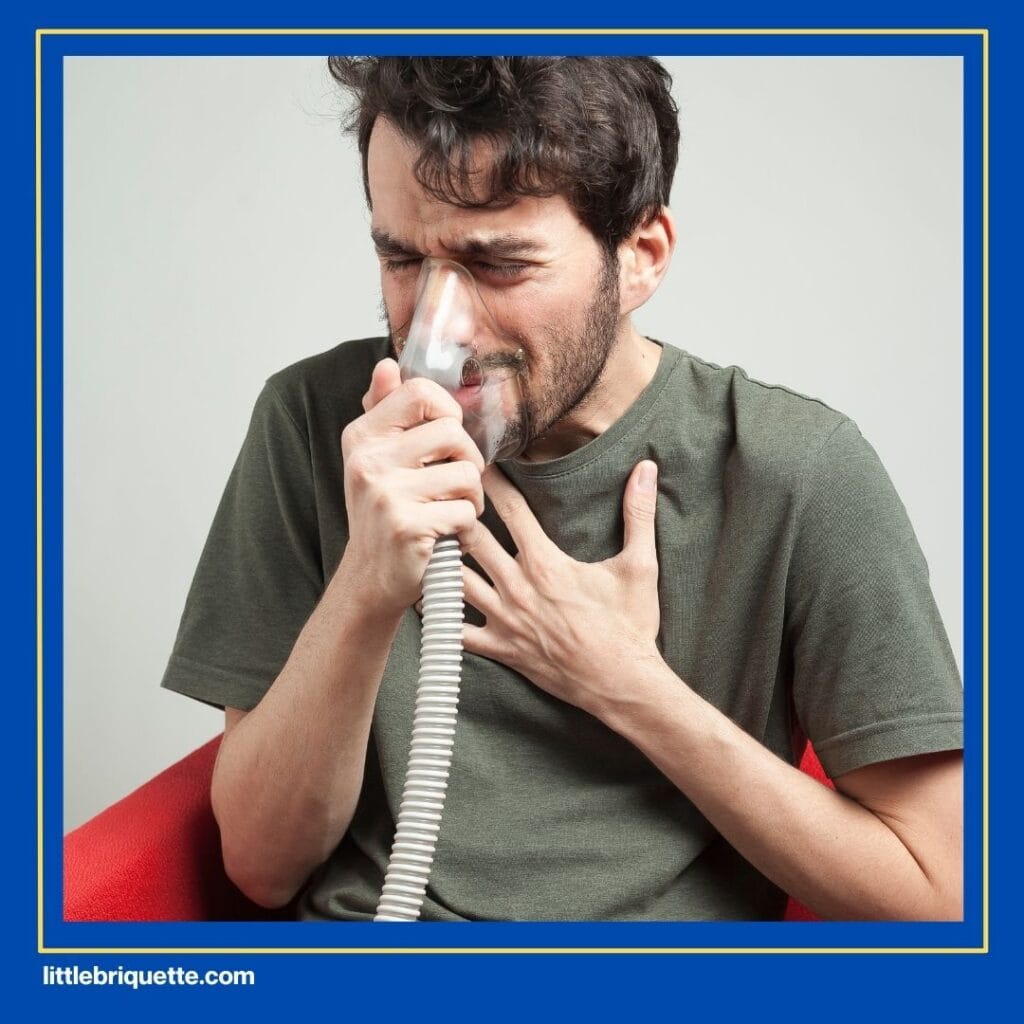A hookah is a smoking device used to inhale tobacco smoke that has been heated and passed through water, with the belief that the water filters out harmful substances in the smoke. However, despite being considered lighter and less harmful compared to cigarettes, smoking hookah everyday carries health risks that should not be underestimated.
In the following, we will discuss in detail to provide a deeper understanding of the long-term effects that may occur in the body if this habit continues, as well as why it is important to be aware of the negative impacts that can affect both our physical and mental health.
Long-Term Health Effects of Smoking Hookah Everyday
The habit of smoking hookah everyday is often seen as a lighter alternative to conventional smoking. Many people believe that the filtration process through water reduces the dangers of the inhaled smoke. However, the reality is that this habit still carries serious long-term health risks.
Read Also: How to Optimize Charcoal Shelf Life for the Long Term
Respiratory Problems

Smoking hookah everyday can lead to severe respiratory issues, including chronic lung diseases such as chronic bronchitis and emphysema. This is due to constant exposure to tar, nicotine, and various harmful chemicals in hookah smoke.
When hookah smoke is inhaled, harmful particles attach to the respiratory tract, damaging lung tissue, and causing long-term inflammation. This condition can impair lung function, making breathing more difficult and increasing the likelihood of respiratory infections.
Additionally, it significantly raises the risk of lung cancer. Despite many people believing that hookah is safer than cigarettes due to the water filter, water cannot remove most of the harmful substances in the smoke, such as carbon monoxide and formaldehyde.
The risk of lung cancer from smoking hookah is even higher because many hookah users inhale a larger amount of smoke for a longer duration compared to cigarette smokers. A comparison between hookah and cigarettes shows that while both are equally dangerous for the lungs, the intensity of exposure in hookah users is greater.
Cardiovascular Risks of Smoking Hookah Everyday

Exposure to hookah smoke not only damages the lungs but also has harmful effects on the heart and blood vessels. Hookah smoke contains carbon monoxide, nicotine, and various toxic chemicals that can increase blood pressure and heart rate. These substances can damage blood vessels, raise levels of bad cholesterol (LDL), and cause inflammation in the blood vessel walls. This process can accelerate the development of arteriosclerosis (hardening of the arteries), which in turn increases the risk of heart disease and stroke.
Furthermore, the habit of smoking hookah everyday also increases the likelihood of coronary heart disease. Studies show that long-term exposure to chemicals in hookah smoke can damage heart function and raise the risk of heart failure. Because hookah smoking sessions are often longer and involve inhaling more smoke, hookah users tend to have a higher level of cardiovascular risk compared to cigarette smokers.
Various Types of Cancer

Smoking hookah can also increase the risk of developing various types of cancer, not just lung cancer, but also cancers of the mouth, throat, and esophagus. This is because hookah smoke contains significant amounts of carcinogenic substances, including tar and other harmful chemicals, which have been shown to damage body cells and trigger the growth of cancer cells. Long-term hookah use can damage the mucosal cells in the mouth and throat, increasing the likelihood of cancer development.
Research on the link between hookah use and cancer shows that although the risks may not appear as quickly as with cigarette smokers, the carcinogenic effects of hookah can develop slowly but steadily. Several studies have revealed that hookah users are at a higher risk of developing cancers of the mouth, throat, and even the esophagus, which are directly related to exposure to smoke containing these carcinogenic substances.
Immune System Disruption

In addition to damaging vital organs such as the lungs and heart, smoking hookah can also disrupt the immune system. Hookah smoke contains various harmful chemicals that can reduce the immune system’s ability to fight infections. Long-term exposure to hookah smoke can weaken the body’s defenses, making a person more vulnerable to respiratory infections, colds, and even more serious diseases.
The decline in immune function due to smoking hookah can make it more difficult for the body to heal wounds or fight illnesses. This is due to damage to white blood cells, which serve as the first line of defense against pathogens. As a result, hookah users may experience infections more frequently, have longer recovery times, and have a higher risk of developing chronic diseases.
Effects on Pregnancy and Fetal Health

Smoking hookah during pregnancy poses significant risks to both maternal and fetal health. Hookah smoke contains carbon monoxide, nicotine, and various other harmful chemicals that can affect fetal development. Exposure to these chemicals can increase the risk of miscarriage, premature birth, and low birth weight. Additionally, smoking hookah can cause brain development disorders in the fetus, which may negatively affect the child’s intelligence and behavior after birth.
Another risk is respiratory issues in newborns. Babies exposed to hookah smoke in the womb are at higher risk of developing asthma, respiratory infections, and other breathing problems in the future. Therefore, it is crucial for pregnant women to avoid the habit of smoking hookah to ensure the health and safety of the developing fetus.
What Can Be Done to Reduce Its Impact?
To reduce the negative effects of smoking hookah, the first step is to reduce the frequency and duration of smoking sessions, and gradually quit the habit. Hookah users can replace this habit with healthier alternatives, such as exercise, meditation, or other relaxation techniques that offer similar benefits without compromising health.
In addition, it is important to seek support through healthcare services, such as counseling or smoking cessation programs, which offer assistance and resources to overcome nicotine addiction. By taking these steps, users can protect their long-term health and improve their quality of life without relying on hookah.
Read Also: Flavored Charcoal for Hookah – A New Way to Smoke
Coconut Shell Charcoal Briquettes to Reduce Health Risks
These are the long-term effects of smoking hookah everyday. It is important to reduce the risk of disease over time to maintain overall health. One way hookah users can do this is by switching to coconut shell charcoal briquettes for fuel.
Coconut shell charcoal briquettes, made from coconut husks, provide a healthier burn for hookah. This is because they use natural materials without harmful chemical additives. You can purchase affordable coconut shell charcoal briquettes from Little Briquette by contacting the admin number here.

